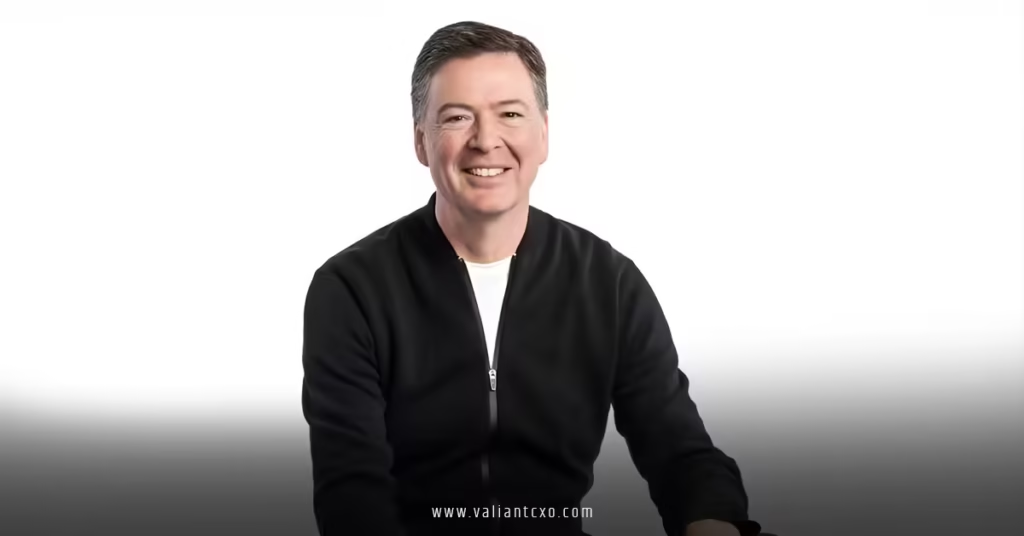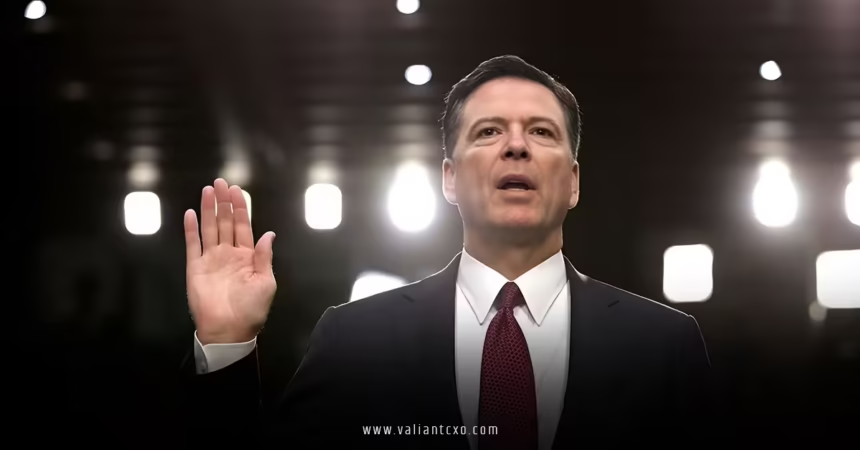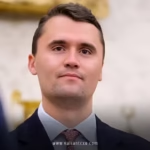James Comey indicted for false statement to Congress in 2020 Russia probe testimony—those words hit like a thunderclap in the middle of an already stormy political season. Imagine this: the former FBI director, once the face of integrity in the chaos of the 2016 election, now facing federal charges that could land him behind bars. It’s the kind of plot twist that even Hollywood scriptwriters would envy, but this is real life, unfolding right now on September 26, 2025. As someone who’s followed this saga from the leaked memos to the Mueller report, I can’t help but wonder: how did we get here? Buckle up, because we’re diving deep into the what, why, and what’s next in this bombshell development.
The Roots of the Storm: Who Is James Comey, and Why Does This Matter?
Let’s start at the beginning, shall we? James Comey isn’t just some suit in Washington—he’s the guy who became a household name when he announced, just days before the 2016 election, that the FBI was reopening its probe into Hillary Clinton’s emails. That move? It sent shockwaves through the campaign trail, arguably tipping the scales in Donald Trump’s favor. But Comey’s story doesn’t stop there. Fired by Trump in 2017 amid the escalating Russia investigation, he morphed into a whistleblower, leaking memos about those Oval Office chats to spark a special counsel probe.
Fast forward to the Russia probe itself. Launched in 2016, it zeroed in on potential ties between Trump’s campaign and Russian interference in the election. Think of it like untangling a massive knot of fishing line—every pull reveals more loops, from the infamous Steele dossier to surveillance warrants on Trump aides. Comey, as FBI director, oversaw it all, defending the bureau’s actions even as critics screamed “witch hunt.” By 2020, with Trump facing re-election, the Senate Judiciary Committee hauled Comey in for a remote hearing, probing those early missteps under the microscope of a Justice Department watchdog report.
But here’s the kicker: that testimony, given on September 30, 2020, has now boomeranged back as the linchpin for his indictment. It’s not just about old lies; it’s about trust in institutions crumbling like a house of cards in a stiff wind. If a top cop can face perjury charges over defending his own words, what does that say about the game we all play in democracy?
Unpacking the Indictment: What Exactly Went Down in the James Comey Indicted for False Statement to Congress in 2020 Russia Probe Testimony?
Picture this: a grand jury in Northern Virginia, poring over transcripts from a COVID-era Zoom call that’s now the stuff of legal legend. On September 25, 2025, they dropped the hammer—two counts against Comey: making a false statement to Congress and obstructing a congressional proceeding. No small potatoes; these could mean up to five years per count if convicted, though real sentences often skew lighter based on guidelines and judges’ moods.
So, what sparked this fire? The core allegation ties back to Comey’s 2020 defense of his 2017 testimony. Back then, under oath before the Senate Intelligence Committee, he swore he hadn’t disclosed or greenlit leaks about FBI probes into Trump or Clinton. Fast-forward to 2020, and Senator Ted Cruz presses him: “Did you authorize any FBI staffer to be an anonymous source?” Comey’s reply? A firm “I stand by the testimony you summarized that I gave in May of 2017.” Prosecutors say that’s a whopper. They point to a 2018 inspector general report uncovering texts and emails suggesting Comey did okay a leak to the Wall Street Journal about an FBI dig into the Clinton Foundation. His deputy, Andrew McCabe, later copped to being the source, but Comey claimed ignorance. Conflicting stories? You bet—and the feds see Comey’s 2020 reaffirmation as perjury on steroids.
Then there’s the obstruction charge. It’s fuzzier, but boils down to Comey allegedly stonewalling the Senate’s probe into Russia investigation flaws by feeding them misleading info. Remember, this hearing wasn’t a casual chat; Republicans, led by Lindsey Graham, were gunning for accountability on everything from FISA warrants to dossier drama. Comey’s words, they argue, weren’t just off-base—they were a deliberate roadblock.
Interestingly, the grand jury nixed a third count: claiming Comey lied about not recalling a 2016 intel briefing on Clinton’s campaign plotting a Trump-Russia hoax to distract from her emails. He said it “doesn’t ring a bell,” but declassified docs from John Ratcliffe say otherwise. Rare move—grand juries almost never reject charges, happening in like 0.004% of cases. Makes you think: were jurors skeptical of the evidence, or just cherry-picking?
Diving Deeper: The 2020 Testimony That Sealed the Fate in James Comey Indicted for False Statement to Congress in 2020 Russia Probe Testimony
Let’s rewind the tape to that fateful September day in 2020. The world was knee-deep in pandemic panic, elections looming like storm clouds, and Comey—tall, lanky, ever the professorial type—appears on screen from his Virginia home. The Senate Judiciary Committee, stacked with GOP firepower, isn’t there to reminisce. They’re dissecting the FBI’s Russia probe origins, armed with the Horowitz report’s bombshells: rushed warrants, unverified tips, the works.
Cruz, ever the sharp-elbowed Texan, zeros in on the leak saga. “What Mr. McCabe is saying and what you testified to this committee cannot both be true,” he fires off. Comey, cool as ever, sticks to his guns: “I can only speak to my testimony. I stand by the testimony.” Democrats like Amy Klobuchar push back, questioning the timing—”Why now, when we should be talking COVID?”—but the damage is done. That exchange, prosecutors now claim, was the false statement that ignited the James Comey indicted for false statement to Congress in 2020 Russia probe testimony fuse.
Zoom out, and it’s a microcosm of the era’s distrust. The Russia probe had wrapped with Mueller’s 2019 report—no collusion found, but plenty of “sweeping and systematic” interference. Yet echoes lingered: Trump’s “Russia hoax” rants, Comey’s book tours defending the bureau. By 2020, with Biden in the mix, every word from that hearing carried electoral weight. Comey later reflected in interviews that the probe was “essential,” flaws and all—like a flawed surgery that still saves the patient. But if the feds are right, those words masked a deeper rot.
The Bigger Picture: How the Russia Probe Set the Stage for James Comey Indicted for False Statement to Congress in 2020 Russia Probe Testimony
You can’t grasp this indictment without looping back to 2016’s fever dream. Russia hacking DNC emails, WikiLeaks dumps, Manafort’s shady dealings— it was spy novel stuff, but with real ballots at stake. Comey, thrust into the spotlight, balanced probes on Clinton’s server and Trump’s potential puppet strings. Critics called it a no-win: too tough on her, too soft on him? His firing—Trump’s “this Russia business”—only fueled the fire, birthing Mueller’s team.
Enter the leaks. That WSJ story on the Clinton Foundation probe? Timed like a political gut punch, right before Comey’s infamous letter. McCabe authorized it, per his account; Comey says he was in the dark. The IG report sided mostly with Comey, slamming McCabe for “lack of candor” and costing him his pension. But fast-forward, and new evidence—maybe fresh declassifications under a post-2024 Trump admin?—flipped the script. It’s like finding that missing puzzle piece years later, only to realize the picture was upside down.
This ties into broader themes of accountability. Remember Durham’s probe into the probe’s origins? It fizzled with one guilty plea, but sowed seeds of doubt. Now, with Comey in the crosshairs, it’s payback time—or justice served? As U.S. Attorney Lindsey Halligan put it, it’s a “breach of the public trust at an extraordinary level,” underscoring how oversight hinges on straight talk. In a world of deepfakes and spin, one false oath can topple giants.

Reactions Pour In: Shock, Outrage, and the Political Firestorm Around James Comey Indicted for False Statement to Congress in 2020 Russia Probe Testimony
News of the indictment broke like a dam—social media erupted, cable news looped the mugshot (okay, no mugshot yet, but you get it). Trump, never one to miss a mic drop, tweeted something fiery about “justice finally served” on the man who “tried to take me down.” His base cheered; it’s red meat for the “deep state” narrative.
Democrats? A mix of disbelief and deflection. Biden’s camp called it “politically motivated,” echoing Klobuchar’s 2020 quip about election-season theater. Comey himself? Silent so far, but sources say he’s lawyering up, prepping a memoir sequel titled Unjust or something equally punchy. AG Pam Bondi, Trump’s pick, framed it as DOJ’s vow to “hold those who abuse power accountable,” a line that lands differently depending on your zip code.
Legal eagles are buzzing too. Perjury cases against ex-officials are rarer than hen’s teeth—think Scooter Libby levels of drama. But with the statute of limitations ticking down (it expired this week, hence the rush), prosecutors had to swing. Pundits speculate trial dates could drag into 2026, turning courtrooms into campaign arenas.
And the public? Polls are already shifting—trust in FBI at all-time lows, per Gallup. It’s a reminder: in politics, yesterday’s hero is tomorrow’s villain. As one analyst put it, this is less about Comey and more about recalibrating power post-Trump 2.0.
Legal Ramifications: What Happens Next in the Wake of James Comey Indicted for False Statement to Congress in 2020 Russia Probe Testimony?
Alright, let’s get nerdy for a sec—because if you’re like me, you love a good courtroom crystal ball. Comey’s arraigned soon in Virginia federal court, Case No. 1:25-cr-272 if you wanna track it on PACER. Bail? Likely, given his Boy Scout vibe—no flight risk here. But the real battle’s in discovery: will prosecutors unearth those elusive emails proving Comey greenlit the leak? Defense might counter with IG’s original findings, painting this as DOJ overreach.
Sentencing guidelines? Up to 5 years each count, but factors like age (65 now), clean record, and “acceptance of responsibility” (if he pleads) could slash it. Plea deal whispers are rife—maybe drop obstruction for a fine and apology. But Comey? Stubborn as they come; expect a fight.
Broader ripples? This could chill whistleblowers, making feds think twice before testifying. Or, flip it: reinforce that no one’s above the law. Either way, it’s a masterclass in how 2016’s ghosts haunt 2025.
Potential Defenses: Can Comey Dodge the Bullet?
Comey’s team might argue memory lapses—hey, 2020 was a blur for everyone. Or selective prosecution: why him, not McCabe (fired but not indicted here)? Analogies abound: it’s like charging the captain but sparing the crew in a mutiny trial. Experts say his best shot is challenging the “knowingly false” element—did he really believe his 2017 words in 2020?
Trial Timeline: When Will We See the Verdict?
Expect motions galore: dismissals, suppressions. Trial? Mid-2026, barring delays. In the meantime, expect leaks (ironic, right?) and side stories—like McCabe’s potential testimony. It’s procedural chess, with America as the board.
Broader Implications: Why the James Comey Indicted for False Statement to Congress in 2020 Russia Probe Testimony Echoes Beyond the Beltway
This isn’t Beltway bubble stuff—it’s a gut check for us all. In an era of “alternative facts,” when do slips become crimes? Comey’s fall questions FBI autonomy: was the Russia probe pristine, or politicized from jump? Metaphor time: it’s the canary in the coal mine for institutional rot, warning that unchecked power—left or right—breeds backlash.
Globally? Allies eye U.S. stability warily; Russia’s laughing, perhaps. Domestically, it fuels 2026 midterms: retribution vs. reform. As a novice politics watcher, I’d say it’s a call to arms—demand transparency, or watch trust evaporate like morning fog.
For Comey personally? From boardrooms to the bench—his legacy, once towering, now teeters. Yet, remember: presumed innocent. This could exonerate him, burnishing his martyr halo.
Wrapping It Up: Lessons from the James Comey Indicted for False Statement to Congress in 2020 Russia Probe Testimony
Whew, what a ride. From 2016’s election inferno to today’s indictment blaze, James Comey indicted for false statement to Congress in 2020 Russia probe testimony crystallizes a decade of division. We’ve unpacked the charges—perjury on leaks, obstruction in oversight—the testimony’s tense vibes, and the political aftershocks. It’s a tale of hubris, accountability, and the razor-thin line between duty and deceit.
But here’s my take: use this as fuel. Question narratives, back facts, engage civically. Democracy thrives on vigilance, not vendettas. Stay tuned—this story’s far from over, and who knows? It might just rewrite the rules.
Frequently Asked Questions (FAQs)
What led to James Comey being indicted for false statement to Congress in 2020 Russia probe testimony?
The indictment stems from Comey’s 2020 Senate testimony where he reaffirmed denying involvement in media leaks about 2016 FBI probes, contradicting evidence from a 2018 IG report on a Wall Street Journal story.
How serious are the charges in the James Comey indicted for false statement to Congress in 2020 Russia probe testimony case?
Pretty serious—two federal counts carrying up to 10 years total, though sentences often land lighter. It’s about eroding trust in oversight, not just old grudges.
Was the Russia probe central to why James Comey was indicted for false statement to Congress in 2020 Russia probe testimony?
Yes, the 2020 hearing scrutinized the probe’s origins, including leaks and warrants. The false statement tied back to balancing Clinton and Trump investigations.
What defenses might James Comey use in his indicted for false statement to Congress in 2020 Russia probe testimony trial?
Likely memory issues or IG support for his original account; his team could argue the statements weren’t “knowingly” false, challenging prosecutorial intent.
Could the James Comey indicted for false statement to Congress in 2020 Russia probe testimony affect future FBI probes?
Absolutely—it might make agents wary of testifying, chilling whistleblowing, or conversely, push for stricter leak protocols to rebuild public faith.
For More Updates !! : valiantcxo.com


